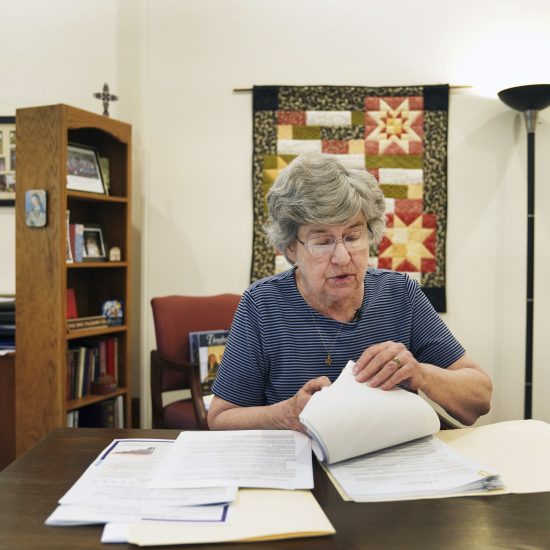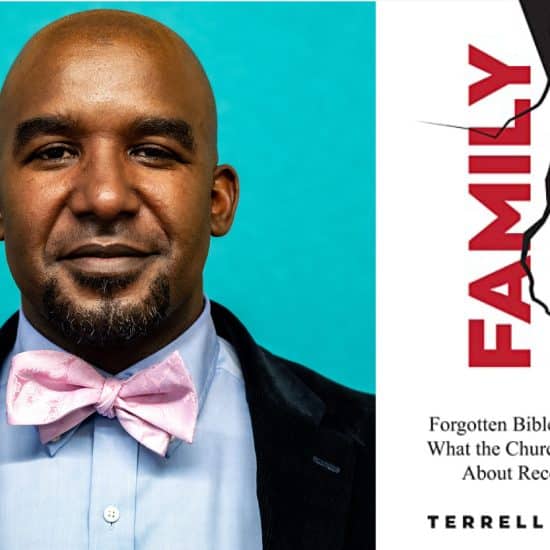ALLEN—When a Connections class at First Baptist Church in Allen, Texas began meeting in January a year ago, its diverse membership included a self-proclaimed atheist who attended because he had a friend at church, three unmarried cohabiting couples and assorted other newcomers to Bible study.
“We offer the Connections class particularly for people who aren’t part of a small group. It may be their first time in an adult Bible study, or it’s at least their first time at our church,” said Jeff Humphrey, minister of education. “It’s a safe place for them to come connect to Christ and connect with us.”
After a few months of Bible study, two of the three couples who were living together married. From the Connections class last year, eight adults — and several of their children — made professions of faith in Christ and were baptized, Humphrey reported. That number included the former atheist, and he plans to participate in a church-sponsored mission trip to Malawi later this year.
 |
“Out of the six or seven Connections classes we’ve offered, we’ve activated more than 150 people, maybe up to 200 now, involving them in Bible fellowship groups,” he said.
Once they become part of the Bible fellowship groups—the name for adult small-group Bible studies at the Allen church—they become involved in the larger life of the church, he explained.
“We realize the front door for most people is the worship service,” Humphrey said. “They come to big church. We get them involved in small groups. Then they catapult back into the life of the church as a whole, getting involved in other areas.”
Some of that involvement occurs within the context of the small groups, such as having each class sponsor a carnival-style event during Vacation Bible School family night. Small groups also allow time for new Christians to discover their spiritual gifts and find ways to use their life experiences and natural abilities in Christian service, Humphrey noted.
One couple from the Connections class who were baptized last year work with a children’s Bible study class now, he said. Others sing in the choir, play an instrument in the church orchestra, work with the food pantry or volunteer in community-service projects.
Small groups, such as the Connections class, also provide a caring community where relationships can grow, Humphrey added. When a minister on the church staff learns a member has been admitted to a hospital and goes to visit, he often finds several people from that member’s Bible fellowship group already in the room, he noted.
“People get tied in more through Bible fellowship groups than through being in a room with 800 other people” in worship, Humphrey added.
Jim Hill, executive director of ChurchNet, a ministry of the Baptist General Convention of Missouri, agreed.
“I believe a significant factor in assimilating new members is incorporating time in groups for building relationships,” he said.
In addition to ongoing Bible studies, short-term small-group studies—anywhere from four weeks to 13 weeks long—incorporated into churches’ discipleship programs particularly can be helpful in enabling new arrivals at church to make friends.
“Our church (First Baptist in Jefferson City) has used this approach several times. My wife and I have found these groups very helpful in getting to know members of our church who we might not otherwise have become acquainted with,” Hill said.
Opportunities to form deep and lasting friendships is one of the characteristics of an effective small group Albert Winseman identifies in his book, Growing an Engaged Church. Small groups also provide places where people can “have their spiritual needs met, learn and grow, be encouraged in their spiritual development, feel cared about and see spiritual growth in others,” Winseman writes.
No small group can hope to “score a 10 on every item, every week of every year,” said Phil Miller, director of the Bible study/discipleship team with the Baptist General Convention of Texas. “The crucial element is balance. Great small-group lead-ers continually ask themselves and their group members how they are doing on each of these items.”
Small groups must be consistent in caregiving and genuine in their concern for all members, Miller emphasized.
“The baseline seems to be having a caring spirit for every member, regardless of their attendance record. We can’t forget about the person who only attends Christmas and Easter, yet we shouldn’t forget about the person who shows up every time the doors are open,” he said. “Since every person’s needs are differ-ent, we should seek to be personal in our approaches to caring.”
Some small groups use social media to stay in touch with each other and let other members know about needs and prayer concerns, Miller added. “The method doesn’t seem to be as important as the motive.”
Rather than being cliques or cocoons, small groups should be launching pads for ministry into the everyday world, Miller emphasized.
“The world around us is changing at warp speed. Our classes need to reflect the real-world needs that our members experience in their daily life,” he said.
“Our churches’ small groups shouldn’t be places where we get away from the world, potentially creating an ivory-tower mentality. We must create a safe place where people can be encouraged, challenged, motivated to go back into the 24/7 world in which God has placed us to be salt and light.”






